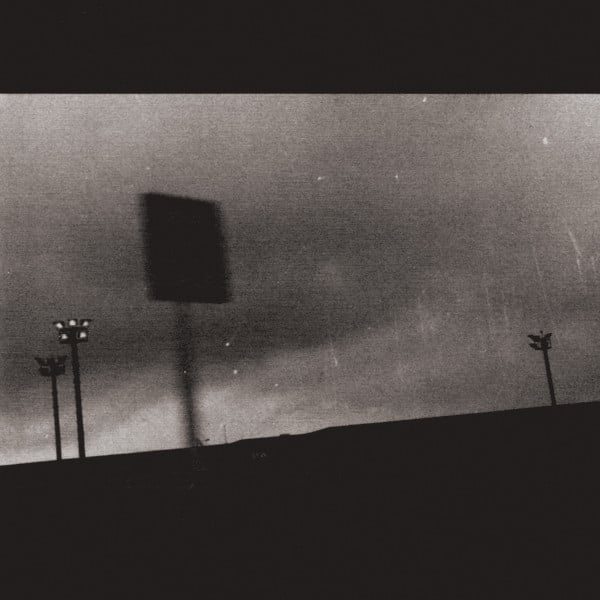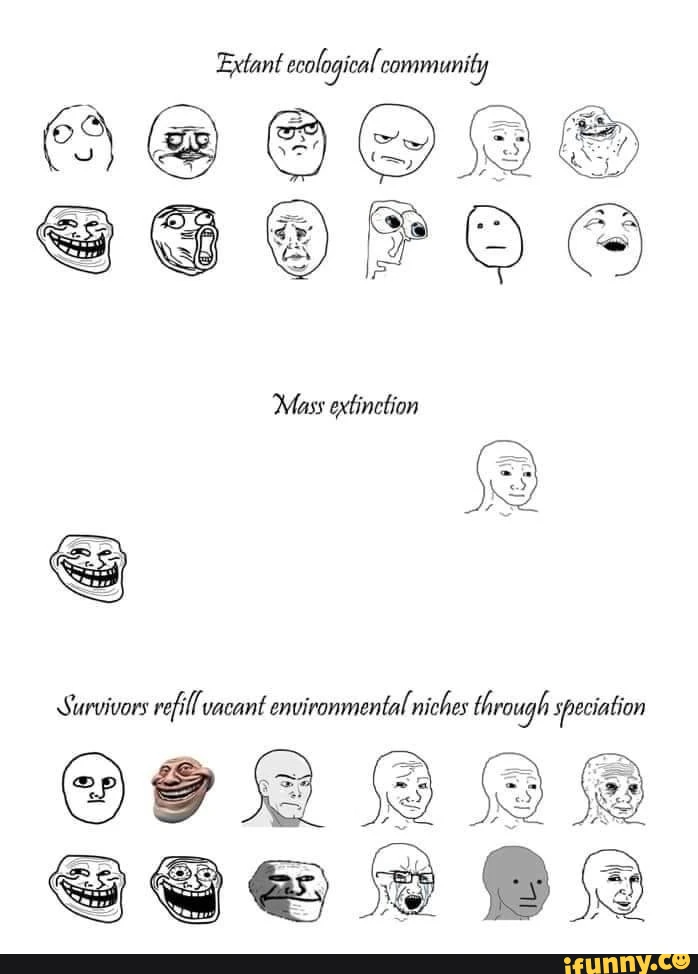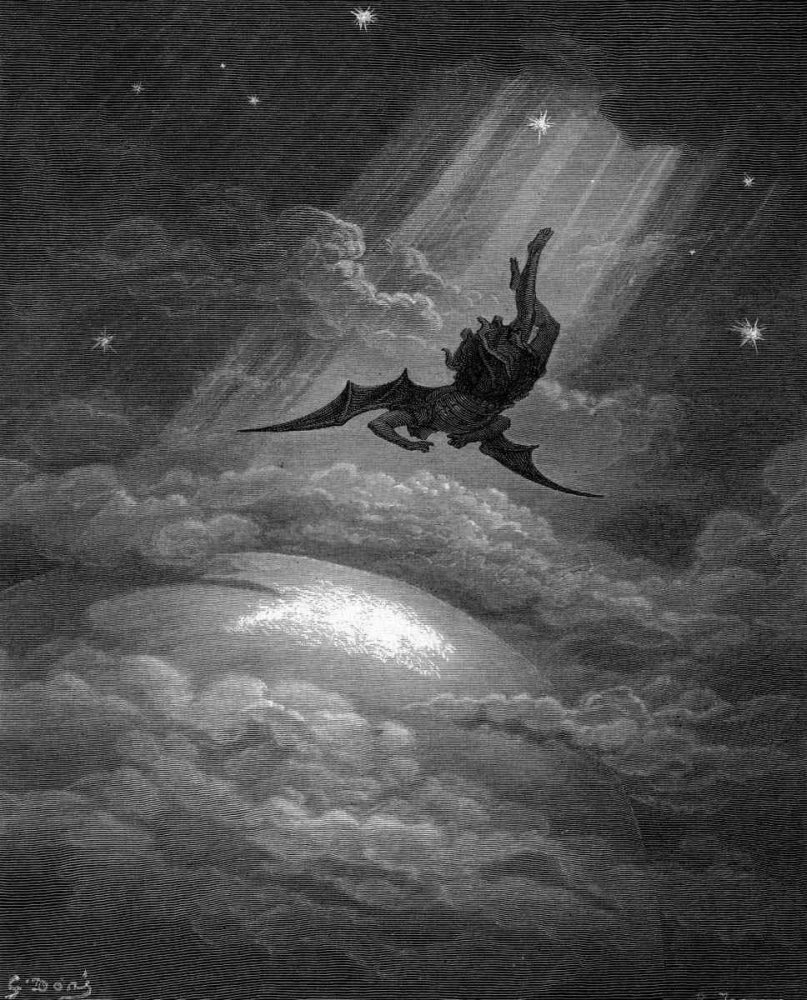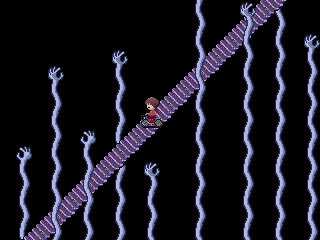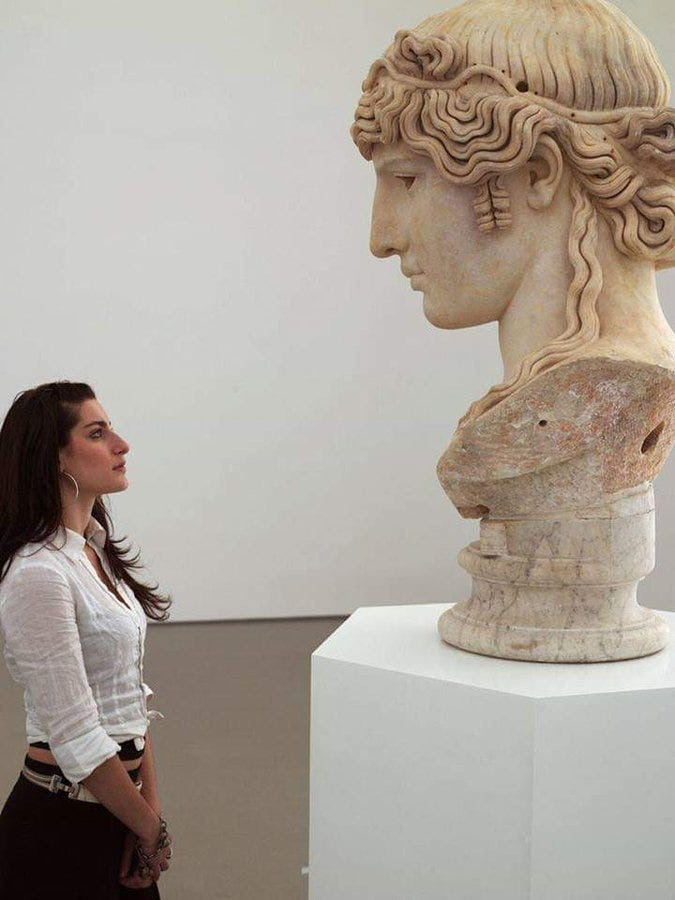iconoclasim as escape from cultural entropy?
historical cycles of iconoclasim, will, and entropy leave only the most enduring of cultural arifacts
a great iconoclasm is overdue for the world today, especially the internet.
The social media model and it's consequences for human culture and humanity's ability to recognize itself heralds an iconoclasm greater than any other in history by scales of magnitude upon scales of magnitude. This world must be destroyed.
.png)
Cultural Entropy
The essential idea
5/?/23 I believe there exists some kind of "cultural entropy", which is opposed to "cultural will to power" in the same way that there exists entropy and will on a physical
level in every single aspect of the universe, it exists in the human mind like energy and particles dispersing evenly (chaos) individual people are always exerting individual will,
if you think of schopenhauer's writing, you know how existing inherently means a constant drive to somehow exert/perpetuate one's existence (called the "will"), even if it's indirectly (+nietzsche writes a lot about how people exert their will through cultural influence, the genealogy of morals etc)
Schoppenhauer also writes about how the concept of being individual means that every person, and even every form of life, has a separate will. This separation inevitably creates conflicting interests, as all life wants to exert existence and not all life can coexist (ex; prey wants to live but a predator must also eat the prey to fulfill its will to live) so there's always a struggle in nature.
(this applies to human interactions as well, regardless of how much we may want to care about other people, our individuality means there will be struggles with coexistence to overcome, imagine the example of romeo and juliet, this principle applies to literally everyone in existence at the same time.+If you've watched neon genesis evangelion you might think of the last scene with Kaworu, the show is full of Schopenhauerian themes.)
On a cultural level, people also exist with a neverending instinct to distinguish
their own identity. having stronger identity and/or cultural influence makes us feel like we exist more, which satisfies the instinctual will to perpetuate our life
(think of how often a very dedicated artist or scientist will describe a project they care about as being "like a child" to them)
In the will to exert our own existence we require more than to just agree with a bunch of people, we need to create something (different) in order to differentiate "us", even if we're just finding new ways to fit together the same old pieces of culture. But the result is that there can become trends of entropy in culture, every aspect of culture is split up, altered, distorted, and worn down in every possible way until it loses all its energy. Culture is a collection of shared personality, but personality is inherently individual. And in pursuit of existence as individuals, personality is opposed to being shared, therefore...cultural entropy
The Degredation of Culture, and of the things which make it up
No culture or artifact of culture or subculture ever actually gets better over time. Absolutely everything in the world is in a constant process of getting worse, what appears to be a culture getting better is actually the introduction of truly new artifacts of culture, new genes are introduced into the populace of the collective consciousness. A small degree of (good) development upon an origin, if any, is actually part of the creation of the original good (i.e the origin is still in the process of being created), and the reality is that further development simply represents an extension of the host artifact, which is not complete yet. Once the host artifact of culture is complete, it only ages. The development of a cultural origin may be better described as *discovering* it's innate good qualities which were not initially known, as opposed to creating them.*
*for those looking to be optimistic, I think it's possible that the good qualities of a thing are not as finite as they seem, as new cultural contexts are created by *other* new cultural origins, and within these new contexts there may be further development to discover in the old cultural origins
It's just like how people always get older, nobody ever gets younger, instead they are just replaced with new people. (After a certain age, development of the origin is complete, and from that point the desired quality comes not from continued growth but from stability.**) In the same sense culture follows entropy. The quality of goodness only comes from cultural youth. A culture only appears to become better though continuous origination.
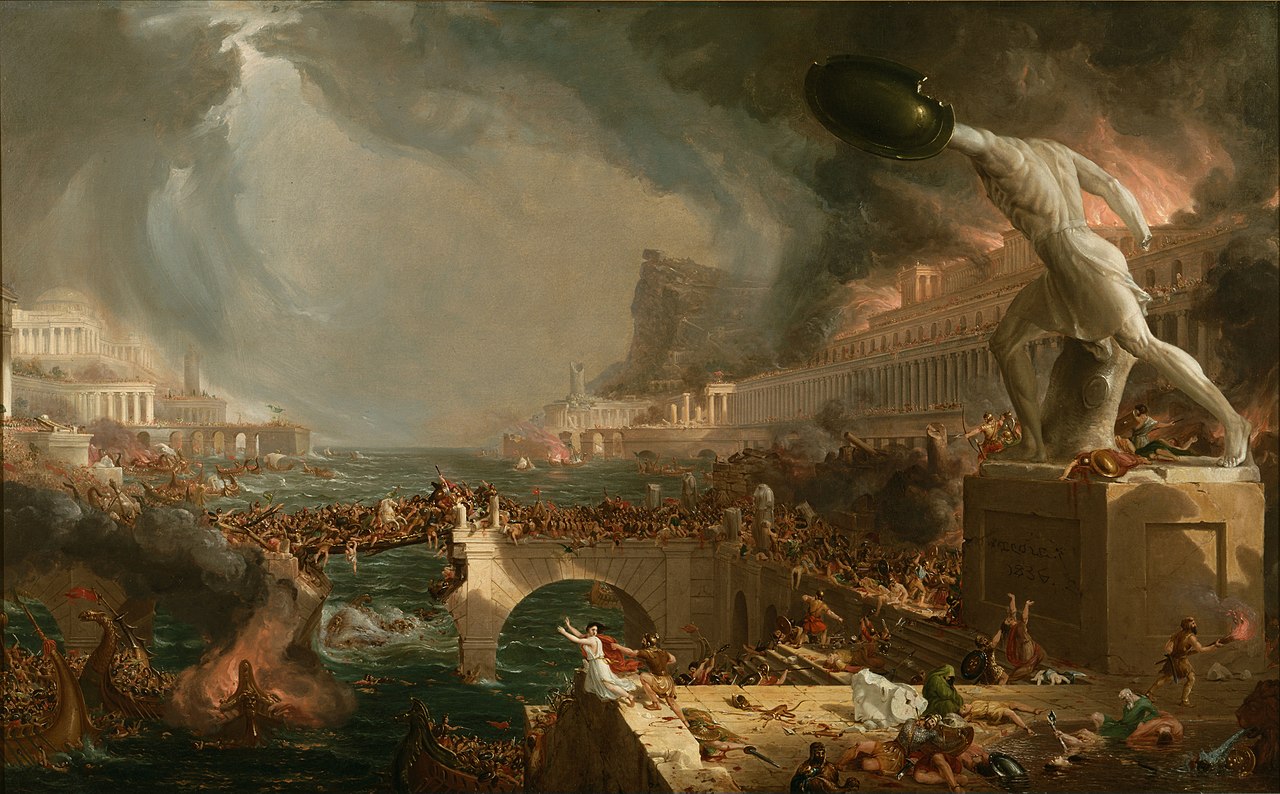
1/5/24 Oswald Spengler saw history not as people exerting themselves through culture but as culture exerting itself though people. He wrote that civilizations are akin to biological entities, each with a limited and deterministic life cycle encoded as if genetically through it's culture. Through historical instances cultures are inevitably fulfilling all of the possibile expressions of their unique worldview until it is completely exhausted of original ideas and must essentialy die. Regardless of if the cultural products are preserved phyisically, the culture simply does not exist and cannot be experienced anymore.
**although... Just like culture, the value of life and meaning of existence even as we grow beyond some imagined ideal, beyond our simple origination and progenation, our basic childhood development, is the continuous discovery of the self, something ultimately indistinguishable from the *creation* of the self.
(12/12 if we cannot preserve culture that is "original" in a Heideggerian sense, then in our new culture we will have to create artifacts which are continuously "original" in the sense that they are their own new origins to a way of seeing the world, but still contain some direct connection to reality rather than being based upon a presupposed layer of culture. To carry a Heideggerian "original" forwards through processees of cultural entropy is to lose the appeal of the culture by causing it to no longer be the "original", and at the same time by holding onto this culture we are also refusing a new culture entirely)
Humanity
History is the story of cultural entropy. The physical individual feels the necessity to follow the evolutionary instruction of the genome of culture they have created, because humans are cultural animals and we exist within our culture, so in order to exist we must exert culture, an exertion which extends into the physical. Evolving to become complex sentient and social life, humans cannot live on physical existence alone.
12/7/23 There is a missing continuity which the theory of cultural entropy fills between the german/hellenistic philisophical tradition and the modern french philisophical movement and post-marxist thinking, including some very key ideas like those of Baudrillard, which are now more important than ever to understanding the complex issue at play in modern culture and society. The ideas of shopenhauer and nietszche are crucial to their own, a seemingly isolated understanding (i.e. gedankenwelt) of the world which is timeless and trancendental, while Baudrillard is a post-marxist and hardly concerned with anything spiritual or mythological but only with basic material conditions, with no trancendental higher meaning that could get in the way of the marxist thinking of economics as a utilitarian form of hard science.
The "eternal science" of marxism seems opposed to nietzsche's "Joyous Science/Gay Science" (Die fröhliche wissenschaft) and opposed to his critique of hard science (naturwissenschaft= natural science) and science's role in leading to the creation of the "last man" and as being anti-life and nihilist in the same anti-life philisophical tradition previously suffered under religion. Nietzsce is epsecially concerned that this specific kind of science as we know it today will discard the sense of purpouse which justified the existence of religion, while still taking for granted the immutable nature of the destructive religious construct of morality which is based in resentiment (Ressentiment) and the virtuousness of suffering and victimhood as deserving of reward, something that plays a role in the philosophy of utilitarianism which both refuses higher values and rewards victimhood, this utilitarianism is essential to a purely marxist worldview and is also unavoidably nihilist, as marxism provides no answer to meaning for life, and assumes that any attempt at truly providing one will jeapordize a stable, materialistic worldview.
Baudrillard's concern is the future of post industrial society as simulacra, that due to post-industrial society we will exist in a world that is in many ways not real at all. Being that he is a post-marxist who does not believe in trancendental values or any kind of higher meaning, this conception of a real dystopian world of pure simulacra ONLY concerns him because facades and disacossiation in a sign-based economy can distract the working class from material conditions. Baudrillard sees little or no value in culture for it's own sake.
The concept of Cultural Entropy is an aspect which gives identity to a larger, combined, philisophical tradition. The german tradition is concerned with the will, or will to power, as a continuous thread and sense of higher meaning not just through history but goes even further to reveal that history is simply the product of the will, or "will to power" as the will is operating as superlative fundemental concern of existence itself. The practical analysis of the will in the real world, as schopenhauer descibes, is that it is divided between different beings, (and i suggest possibly also is within the operation of inanimate processees of the universe) and that it is fundementally by nature in conflict with itself. Take note of the importance of recognizing the will to existence as a superlitive diving force, and that it is essential to understand how it is divided by the constructs of individual identities; we have to understand that most life has only a physical body which is very intuitively the being's "Self", and understand that in practice, the will manifests as an exertion of a "self", but that human identity and "self" is different.
Humans- as a crucial part of what distinguisihes "humanity" from everything else, cannot live on their physical existence alone, because humans, unlike the rest of the living world, cannot posses an identity which is purely defined by the boundries of their physical bodies. Unlike with the entirety of all other species on earth, a human identity cannot be genetic alone because humans evolved the evolutionary advantage of the extertion of the will beyond the physical self to an extent that completely exceeds the physical body. In other words we evolved to have "culture" and now the way our brain operates is dependent on it. This metaphysical "humanity" emerges in the physical world throught the development and then complete relience on tool use, as well as evolving to being social animals to eventually cultural animals. Humanity exists within something that is uniquely metaphysical, which might be recognized in simpler terms; not in it's entirety but in the peices of it which will peek through into everyday life in matters which fall under the name of "culture". It is this metaphysical "humanity" where the the humanity(adjective) of humanity(noun) actually resides, and not within the human genome (if you are familiar, note possibly relevant and similar points made my Julius Evola). Nietzsche's "will to power" is different from Schopenhauer's "the will" because nietzsche understands that the will is not restrained to simple physical self preservation or the passing on of genetics, as he writes in a critique of darwin, but that the will necessarly is a will to exert the self- but beyond the self, with the more evolutionary aspect of self preseration or reproduction actually being a secondary consequence of this, and the culmination of this exertion onto something outside the self is the entire human tradition and human condition, which is culture. The value of Baudriallrd is that despite his lack of higher philisophical values he specializes in more clearly understanding the modern world in how, specifically, it is a collapse of all identity and language and culture and art, and within the context of the more metaphysical and mythological philosophers, why the threat is not foremost materialistic in nature but existencial to the essence of "humanity" in the modern world. Through the idea of cultural entropy we can view the will/ the will to power as the active force of the individual within in every aspect of postmodernism, both the will's role in contributing to and fighting against the aspects of the postmodern world which pose an existential threat to the construct of humanity.
People socially and materially invest in the kind of person they are, without even realizing it, until eventually being a different person isn't even a choice, or at least an extremely hard conscious choice. Try to imagine what would be left of your human identity if there were no more algorithms or industrial facades mediating your interaction with the world around you, there would be almost nothing left, for that reason people essentially choose to lose freedom. you stay inside a mental prison you create for yourself because you are incapable of wanting or even imagining that there exists an "outside" to this prison. You become afraid to lose the part of yourself that *IS* the prison.
Unable to realize or unwilling to admit that all our lives have been rebuilt to rely on something which has withered so grotesquely, we sit back as it is kept in this suspended state of rot, rather than destroyed and regrown like everything else in the course of nature and history. Like some cancerous growth on society, we are subconsciously afraid to destroy it because it is now so inseparably part of ourselves.
=================================================================

Every year, the internet progresses


it's all so exhausting, the friction is causing society to overheat
Exerpts from my drafts (Anna gets mad about the internet or some shit again)
5/11 i assumed i had written or implied this before but i wanted to say that normal words or phrases (or iconography) becoming ruined or at least distracted by the fact they're forever associated with something is also an aspect of cultural entropy. Like ive implied before; that is especially when it's associated with something that stops you from being able to take it seriously.
(like if a word or phrase is used in the title of a movie, the phrase may be too synonymous with it to ever only invoke itself again / to invoke it's original meaning. as time progresses, everything gains connotations faster than connotations are lost. To be fair all meaning is made of connotations, but the point is that this process is entropic)
(6/23 addition) "it will be a rocky road to recovery from cancer" "woah- just like the ice cream!?"
8/24 Why are they just releasing sequels of everything instead of creating something new? and why do they always have to change it instead of making it the way it was intended and for the audience it was indended for and with the themes it's supposed to have? The reason is that the cultural artifact, usually a movie or game, has already appealed to it's demographic, and already made the money it needs to make with the way it is by appealing to it's own evolutionary niche, but rather than leave it for something new to introduce into culture, the cultural artifact, if it is to continue at all, must undergo entropy at the hands of a media conglomerate to exert the will of the artifact to a new demographic it was not intended for. The artifact has to change because the media company knows it already has an appeal to the old demographic, and needs instead to mutate to spread itself to more audences and mutate to evolve to the change in old demographic and needs to mutate to distinguish itself from it's own old iteration, even when it's old iteration was better. The profit incentive in this case is the catalysit for the will, which seeks to disseminate through culture.
4/29 Not only are people driven to cause cultural entropy by producing garbage for attention, (by filling in the easier niches of attention-getting which are within reach, which require the least effort or skill) they invest in their personality by doing so, and are unable to go back to anything better, they must continue to produce garbage to remain relevant, the garbage must become increasingly subversive upon itself, and the more garbage they produce the less chance they have of changing their public image and undoing their personality or changing what they want to culturally contribute. The time spent blindly filling these niches also means they’ve failed to invest in growing in different directions. You wouldn’t trust someone to make something good after they built their whole personality off of garbage, even if it was good you wouldn’t be able to appreciate it. Think of the the cultural trend following all of celebrity culture, following all art movements, all communities of online creators, just to name a few examples.
“why would someone make this garbage? Why is all this garbage content and garbage culture produced?” Because it gets attention, because there’s a market to consume it. The supply creates the demand, or not exactly demand but more of an acceptance for the supply within the infelxable demand for some kind of cultural consumption.
“but why would people give this attention? Why would anyone consume this? Why would this be any part of culture?” Because it is produced, because it is shown to you. People will never stop trying to make something so new that it can’t be ignored, no matter how bad, and every time that happens, you will pay attention, and the cultural entropy will continue. your mind will be a little more destroyed by entropy and you’ll be a little weaker to stop it
Really stop and look at anything you see on the internet, think hard, is it really anything more than cultural sludge? Is it anything more than someone giving in to cultural entropy?
(Someone creating anything just to fill a market for unstable attention spans and absent standards? just exerting their voice for no reason other than to claw further into the collective consciousness? Is it ever because it’s something actually good or unique or groundbreaking worth sharing?)
and remember to ask, are YOU giving in to cultural entropy by consuming it?
4/20 trying to say things that make sense to stupid people slowly makes you stupider over time. I’ve noticed the effect tumblr has on me and other people #Same thing with appealing to other people’s bad attention spans #Or appealing to people who have irrational emotions #It effects the way you think, this definitely is the case with every social media. maybe this is also related to cultural entropy?
(addition 4/28) the scariest part is that you start doing this subconsciously whenever you're exposed to people
the language I want to speak doesn’t exist anymore. It died out along with the world that came before.
10/6/23 normies are always doing weird shit in order to convince themselves that they're not normies
10/22 lesser people have an innate drive to ruin things, physical, cultural or social, because to leave them intact they leave no sign of themselves. They lack innate strong sense of self through creative action. Iconoclasim is a delicate tool for the creative, which reassures that we will not have to hear the same stupid sentences preserved until the end of time. Loss is a reassurance that wasteful things can be superseded. If all action of self, even creative action, is preformed only as an act of consumtion, then all action functions as a ruining of culture, not by selective descision to refine it's traits which are a waste of for attention in culture do not live up to their potential, it is instead change only because change provides interactive consumption. It is not a bad thing but a relief to say you do not like something specific, the chance to eliminate what do do not want leads us to refining and strengthening sense of self. The ability to eliminate variables strengthens the will of the psyche against the will-weakening force of the self's inability to define it's own will. It is a relief to discover you can say "I hate this" and get closer to knowing what you want to love.
It is easy to take for granted only the tragic aspect of iconoclasim, because we inherit only a history of what was saved, and imagine we have lost only a world equally worth saving. It may be easy to lament the loss of things like old manuscipts which were the singular source of their own speculative sciences, but if every text in history had been preserved we would not have just interesting artifacts but instead libraries of mostly incorrect information. We mean to lose many things without thinking about it, it's not hard to see in our time that we have kept almost everything written and in doing so created libraries of incorrect information. Theres nothing more reassuring or sane than to hope we will forget most of this, so that what we want to save stands alone. If we had not lost any artifact of ancient Rome, we would still be living in ancient Rome, and there would be no "ancient" civilization to muse on. To have only the most inspiring of ruins from age after age survive to decorate a storied and ever-free to action present with their mystery is far preferable both to progress and tradition.
7/1 we find people who are the same as so we can talk and share our interests and find new things. but all we will have to communicate is that we are the same. and we will have nothing new to find because we are all only here to find people we are already the same as. in real life there would be some variability between people seeking those similar to them, online we can all find the exact same things and become the same people as eachother and meet only empty variations of ourselves. Only different enough to annoy us and drive us insane. After becoming the same online, we return to real life and again find that we have the same problem, because the people we meet in real life also use the internet and have undergone the same process. On purpouse people will make themselves irritating out of sheer desperation to find individuality, to sever themselves from crowds. It cultivates increasingly fringe borderline personality disorders as people desperately try to disdingush themselves in the same ways. Because even their drives to distinguish individuality are picked up by the algorithm, and so subsumed into new kinds of sameness.
6/21 i dont want people getting their grubby rancid social media brains all over my website and my writing and art. theyre polluting everything with their "thoughts".
even just looking at the things ive worked so hard on is a pollution. a ruining of it. theyre touching it with their gross twitter user eyes. fucking freaks. everything they touch gets worse. everything they even tthink about gets worse. their total inability to appreciate things or understand them as they are meant to be means that theyre almost magically reducing how good it is. theyre corrupting it's worth just by perceiving it wrong, it's like quantum physics but with cultural disease
so many of these people in the world are not real sentient humans and should never have been given the language of sentient humans, the ability to express things they won't experience. the ability to consume and change the course of cultures they will not understand. the truest emotions in the world are all being dug up and destroyed by them. its not just mainstream being bad or social media being bad. people are sinking to being lower forms of life. conswumer brained and irony poisoned and shallow, without agency or individual human identity. just reinventing themselves as lower and lower forms of life
if you reach acceptance that means your brain is destroyed
9/17 In Haute Couture, as in the Cambrian Explosion


We see entropy in evolution. A shopehauerian drive to division of the will. a wild drive into the niches that has lost control. Internet users are a lot like these strange outfits and creatures, only with their flavors and expressions of mental disorders instead. In benefiting from rapid evolution, a creature (or culture) becomes vulnerable to the shortening of its own genome, less and less is it encoded within itself not to mutate. An extinction awaits the experimental animals and leviathans of our culture who had so distorted from the forms of reason in a time of uncertain opportunity. But left behind may be gems
With parents you see too, the desire for raising a child is to extend the self, but parents want their child to be an individual. To extend the self, but beyond the self, requires division. Every border implies conflict (both the international and that of the ego barrier). Parents want their child to somehow develop individuality- in conflict with their own desire for the child to be like themselves.
In the biblical story of genesis, the entire creation of humanity, we see this same idea. God has a sense of virtue for which his children are meant to follow, a likeness to himself opposed to ontological evil (to be “un-godly”) but god creates the fruit of knowledge, he creates evil so there can be free will. The children of god are meant to disobey him, and this is how he can love them, they are more than dolls he plays with and controls every action of. In essence the entirety of the Biblical worldview is a question of how we should respond to god’s desire for free will to love. And the biblical worldview as mythos reflects very accurately the reality of how actual parents view their children and the concept of purpose in life -certainly by no coincidence, either we were created in god’s image or his image was created from us, the truth remains the same. The adolescence is the schopenhauerian severing of the umbilical cord, the will of individual life breaks out! A sovereign life escapes from the primordial soup of the ocean!
Doing what is uncomfortable and unreasonable and stupid and tasteless, all just to be free, to be different, alive, to be a real human. The things that are wrong with pubescence are necessary. You might even theorize that sometimes teenagers will intentionally but subconsciously have bad taste just to become independent. Taking the path where they know their parents will not follow. (It's as people grow up- after becoming individuals- that they can refine themselves and have a good personality, so too may be true with culture.) For many cultures a literal path which the parents cannot follow has been a rite of reaching manhood, where a boy must survive in the wild on his own for some period of time.
In many doctrines of east Asian religion (I’m mainly referring to Buddhism but I know at least the Sikhs and maybe even Hindus have something similar) there is an idea not necessarily similar in delivery but somehow containing the same mythologized truth of existence. That there is only one thing in the universe, the god or demiurge or samsara, the single thing develops into these patterns and from this thing are all the emerging complexities from where individuality separates. And as the universe branches into all these things it emerges to observe itself and its own nature and experience itself, but divided into its many parts in the form of sentient life. Whatever we look at is not truly seperate from ourselves, everything is the same self, or rather "god" IS everything, or even yet still if you’re a Sikh it’s both god and the self at the same time. And this is how reincarnation works, not exactly a soul being pulled out of the body, but whatever it is that makes a person, it is returned or reappears again and again through the carnal form (re - in - carnation). The doctrine of these religions is generally asceticism and detachment from the cycle of suffering and desire, but if you wished to appreciate the universe you would embrace your individuality within it, even as it is a source of conflict.
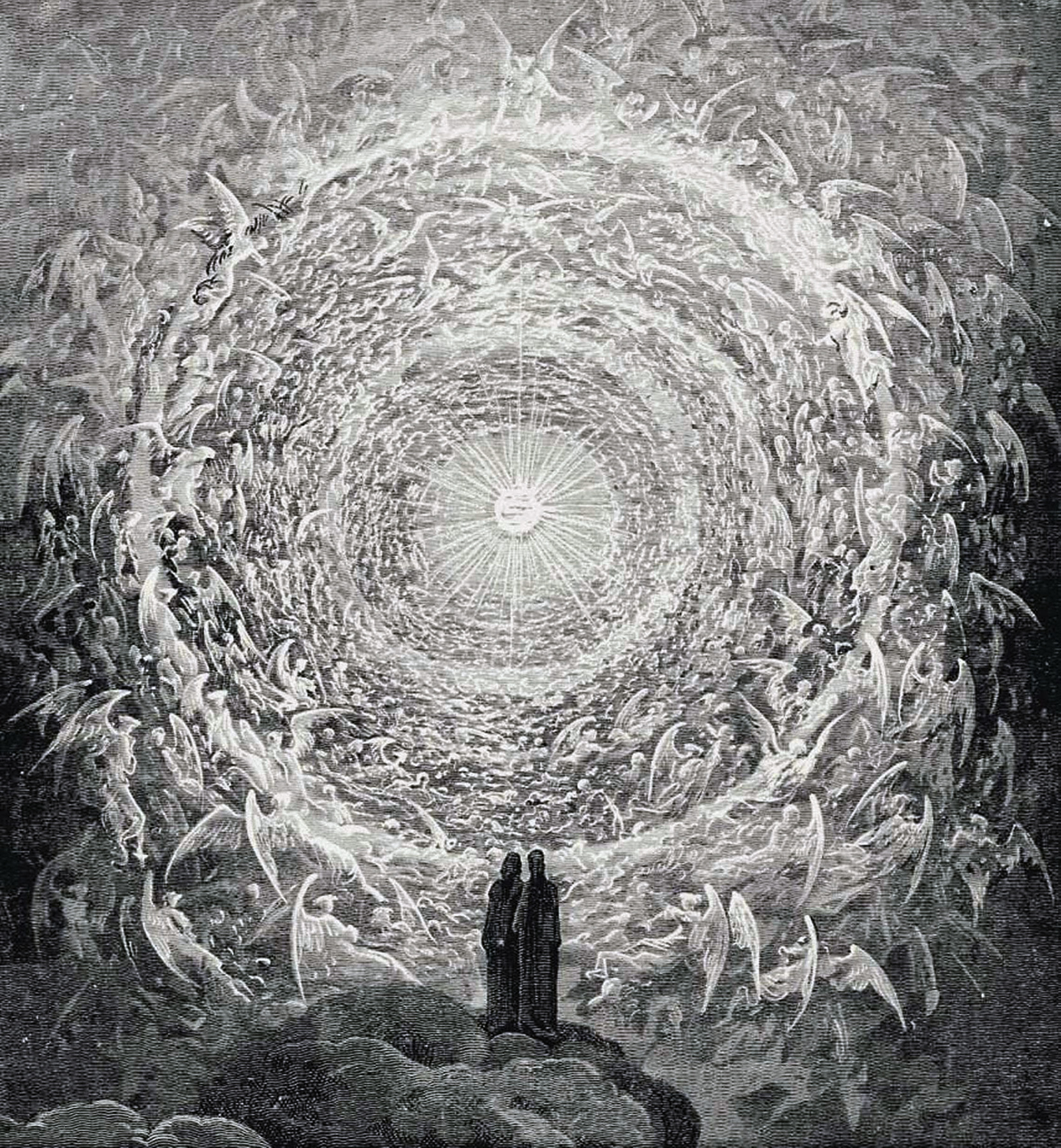
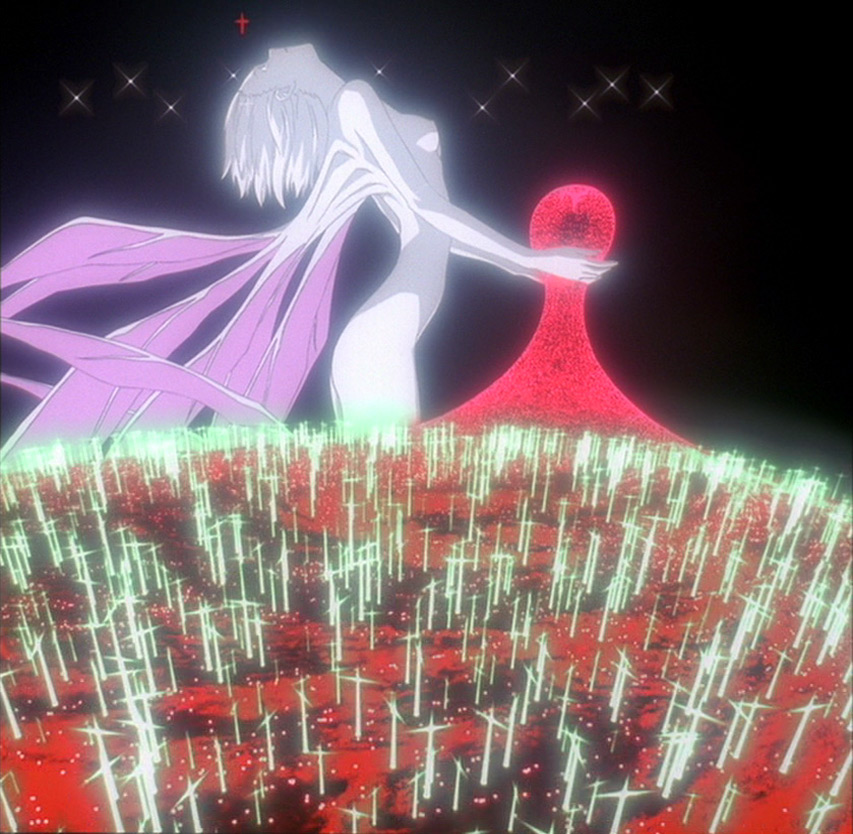
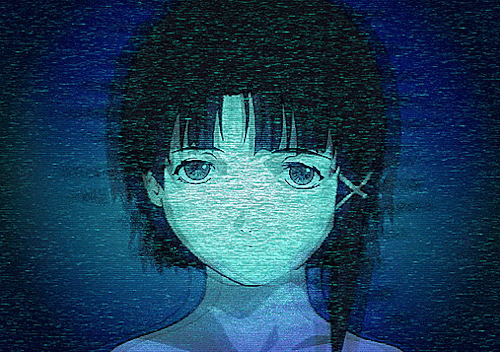
This show made more sense when people didnt talk about it as much. it made sense when it was a widely-kept secret. It's lost meaning.
also I tried so hard not to use lain gifs on my site but it had to be done eventually, it was inevitable
In Praise of The Obscure
9/18 ideas make more sense when fewer people understand them. people are nostalgic for what was niche and avant about the past, but these things have lost meaning in becoming so broadly and openly appreciated. it was in the lost cultural moment where they belonged, that they were understood by few, even as they were influential. it's when only the friend groups talked about something rather than the whole internet that it was best understood. when you're in a dialouge of the community the idea makes less sense than when it was first a revelation you had on your own. secrets keep knowledge in culture, in the mystery is the personality
let me rewrite this...
life is better when everything is a well kept secret even as lots of people still know about it.
Things make more sense the fewer people understand them.
The show you like made more sense before everyone talked about it. it made more sense when it was hard for you to explain in a one-on-one conversation.
The things from the past that make the most sense are the things that have remained obscure and least influenced by the present.
We need to "normalize" things people cant understand.
Normalize living in a world people don't always understand. Normalize being immersed in a world with things other than understanding.
Theres a lack of the dreamlike quality in culture, it might seem like the trend twoards hyperreality would mean increase in the presence of the surreal, but no!
Anything in the world that still doesnt make sense is just being subsumed into irony and restrained to being a joke. You need to culturally revive earnestness for things to feel fresh and mysterious and interesting again.
9/20 Nostalgia, foreign culture, people you can’t fully understand. Sometimes you can only see something from the outside.
#When everything’s mysterious that’s what life is really like.
9/21 nummbed by normalcy we dont see what life is really like until we see it, for example, in a foreign country. Where we cant read the signs we start to see the forest for the trees. We become nummbed with routine until it becomes a memory and then once it's not right in front of us to experience, when it's nostalgia we see in a way what it was really like. Nostaliga isn't a dishonest way of seeing, if you do it right it's more real than the present. I think we can learn to see our present the way we see nostalgia and foreign culture through the right art, but it takes effort to do it right, most people exoticize things and romantacize in the wrong ways and dont care to do it right.
Cultural youth, when you're a child everything is mysterious and unfamiliar.
5/26 I'm constantly mourning the loss of something so nameless and vauge and obscure and easily forgotten and thoroughly erased from existence that i have to fight to even prove to myself and others that it once existed. It's an uphill struggle to reveal even a hint of what was lost. This cluster of emotions, some experience, some idea, some all encompassing worldview on its own, some entire way of being, that's gone forever. It's a time and a place that no longer exists. It's a person who can no longer exist, a kind of person who can no longer even be *imagined*. All of these things are so lost that they can't even be imagined.
5/22 the race to have the most special personality has vastly far surpassed the ability of anyone on the internet to actually grow as a person.
(later addition) everyone forces themselves to unnaturally mutate their personality just to stand out, but they arent even capable of changing as a person that fast, so they all end up with a persona that is completely imaginary. something to do with jungian persona and ego. I haven't read jung yet but I'll come back to that thought when I do.
8/8 There was a brief time, back when it was quiet, when much of the internet very truly fell in love with something beautiful, with a sort of reverence for all the never before expressed, found, created or shared worlds of thoughts and emotion. But it was too delicate, too easy to ruin, and you could just get so much attention for ruining things. Once something was made fun of, you couldnt go back. It wouldnt sell like the new web sold, and what the new web sold was mocking everything. Like all of history, it's human nature, people eventually get tired of things being good, someone always does. Cultral entropy took it's course. And even as you tried to save it, to chase that old feeling, that quiet emotion, you could never again drown out the noise of the new internet. The noise is nonstop. In the fabric of reality, everywhere you go the noise is there. It's in your head, nails on a chalkboard, in your eyes like staring at the sun. Nothing ever stops the noise.
Entropy and Ancient texts
5/4 I’m increasingly taking the importance of ancient texts more seriously. It’s really surprising how so much was realized from the beginning and then lost to the complexity of history and the entropy of cultures. What Schopenhauer and Nietzsche wrote in their philosophies was already contained across ancient text and systems of belief, only written with a much more poetic, metaphorical, or spiritual tone, which is easy to misinterpret over time. Much of Ancient Greek philosophy, Gnosticism, hermeticism, the Veda scriptures (other than just their record of symbolic rituals), Jainism/ the original Buddhism (before it accumulated it’s more superstitious and pseudoscientific aspects), the same aspects of meaning are to be found to some extent in the original birth of Abrahamic religion, and many other ancient texts I probably don’t even know about. Intuitively it seems that the progression of culture and of society means that these recent philosophers represent growing millennia of advancement and discovery and factual confirmation, but what is to be found is essentially the uncovering of the universal truths which, on account of their nature, are already discovered far before they can be truly understood, and as such (being the earliest in an overwhelming lineage of writings) their knowledge disappears into history.
A sort of small scale funny example I noticed was how the “rules of the internet” which was first written in 2006, was originally meant as a joking commentary on the internet, which was extremely new to most people at the time. The observations seemed kind of obvious but were not understood or seen as important, it was just seen as a meme. Rule number one was don’t talk about /b/, rule number two was DON'T talk about /b/. And then, ten years later, the 2016 election happened, people talked about /b/ on a national scale, and look what the consequences were in the landscape of social media. The real and digital world collided, and then both were ruined. On the one side real life was no longer real, and on the other there was nothing left to post about, there was no origin for content, there was no dream. Political unrest reached never before seen levels of nastiness, there was cultural stagnation, cultural decay, more people became trapped online as part of their daily life, for many of these new users, getting trapped online began with following the news coverage of/on the internet, in massive part as a result of 4chan's influence specifically. Many of the other serious rules turned out to be not only accurate, but much more important and omnipresent and often subliminal than people could have fully understood at the time.
in this way, the "rules of the internet" list feels a lot like how ancient texts from lost civilizations do.
>5/13addition.
I think many ancient religions and philosophies fall victim to myth, poetic license and metaphor, where as a result they become taken and is misunderstood and mutated. people, unable to understand what is being said, will attribute genius observations of the forces that exist in the world, and assign a magical understanding to them, because they assume that there is more to what is described than what they perceive in the literal world, how can the confusing texts descibe what happens in the literal world if they fail to see any of it? They rationalize how nonsensical philosophy can be by replacing it with the simpler but more mystical. They cannot understand that these concepts do not describe the literal way of the world in itself, rather than an imaginary hidden spiritual or magical force which is behind and controlling of the world. These magical and spiritual elements are not fictional in origin, they are real but misrepresented and misunderstood until the point where an entire fictional cannon arises. In the most ancient of knowledge there is a literal observation of the world in a lacking language. The magical and spiritual are not beyond or outside of anything, they are the thing itself, it's nature. It is not to be discredited but understood in what it was originally meant to explain.
>6/2 addition.
"Every high civilization decays by forgetting obvious things." — G.K. Chesterton
12/7/23 i have just today learned of heideggers "basic concepts/ ground concepts" and the "original" and epochs of history adding to our layers of what the "ground" to philosophy is, with new presiuppositions that cover eternal orignal concepts, which are original not in the sense of being novel but of being an origin to other things regardless of how old they are. I feel it's possibly very related to my view of mythos and cultural entropy
12/29 I have just learned of spengler's philosophy today; in it i see my own ideas of cultural entropy, mythos, and gedankenwelt as expressed more strongly and similarly than I've ever seen before. I could tell you I dont like him as a person but I can't tell you he's fundementally wrong, because I've independently come to the same conclusions across three of my different articles prior to even learning of his existence and not to mention not knowing that he already covered my three ideas very similarly and concisely in one singular thesis more than a hundred years ago.
1/9/24 I view spenglers philsophy as the shoppenhauerian tragedy playing itself out across civilizations as it does in individuals, entropic, deterministic, individuals with an impenetrable individuality of mind, or geist- an ego barrier, and between them fundemental conflict of will and lifecycles playing themselves out as expressions of the will as determined by the identity the will places upon itself, and of course i can see a continuity to my understanding of postmodernism, and- in the opposite direction into ancient history, my understanding of "ground concepts" as the antithesis to postmodernism
mythos
continue
.png)

